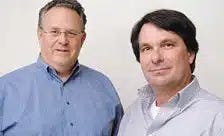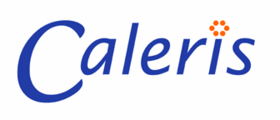Outsource to Iowa, not India
When call centers were moving to India, this duo plunged in to leverage Iowa talent
Once upon a time, product purchases were accompanied by a manual with a toll-free number emblazoned across it for the manufacturer’s help line. The cost of these calls, both the long-distance phone call and the human resources versed in understanding and solving the customers’ problems, were borne by the manufacturer and planned into the price of the products.
Global competition, trickling at first and then suddenly all at once in the early 1990s, brought cheaper copycat products to the US markets. The resulting increase in consumerism and preference for lower prices exerted downward pressure on prices and manufacturers began looking for cost cutting measures. An industry ready for this social change was the telephone industry, recently unshackled from its own monopoly. The cost of telephone calls was falling, with costs dropping from nearly $2/minute for a call to India in 1988 to under $0.10 on calling plans by the mid-1990s.
Naturally, the combinatory effect of such forces was a shift - from toll-free numbers which were largely confined to the US to paid phone calls and from US-based call centers providing customer support to those located at overseas locations. The PC industry, itself under severe competitive pressure, accelerated this movement, first to nearby countries in central and south America and then to India and SE Asia.
Customers hated the change. For most of the US, a switch to toll calls shifted the cost of receiving support to the customer. Further, many had never been exposed to accented English and struggled to understand the person on the other end.
Boomerangs and diaspora
In 2000, Sheldon Ohringer, a graduate of Roosevelt High School in Des Moines was ready to return to his hometown and state after a broad career in telecommunications. He had just completed a multi-year tenure as CEO of First World Communications and previously as President of ICG Telecommunications of Englewood, CO.
A few years prior, having just left Microware Systems himself, Rick Grewell had incorporated a new company, Snap2 Corporation. Snap2 specialized in systems software components and interactive applications for digital TV set top boxes, the early wave of Internet appliances, and in-flight entertainment systems. It counted Motorola and Sun Microsystems as customers and was engaged deeply with Microsoft which itself was investing heavily in digital TV. By mid-2000s, SNAP2’s software was being deployed in over 125 aircraft and in-use by 14+ million airline passengers annually.
Sheldon served on Snap2’s board of directors and brought a deep skillset in enterprise sales and operations. This complemented Rick’s small business and technical expertise. The missing puzzle piece, financials, were filled by Paul Juffer, then of LWBJ Financial (now UHY-US Advisors) who was already helping Snap2 as its virtual CFO. Timing couldn’t have been more perfect for Sheldon’s return, Snap2’s sale, and Rick and Sheldon’s desire to collaborate.
Paul Juffer knew of just the opportunity and made the introduction. The resulting partnership underscores the impact of a single technology company on the surrounding community. Microware Systems and its outsized impact on Iowa’s technology footprint remains strong. Paul and his partners have facilitated so many introductions and M&A transactions that their West Des Moines office contains a cornucopia of logos and transaction artifacts.
ECI & the call-center business
Paul’s introduction entailed a company in the call center business. Owned by Farm Bureau Federation, ECI operated a call center in Manning, IA. At the time they became acquainted, ECI had about 20 employees and was losing about 100K annually. They felt the company showed latent promise, so they took a leap and Rick and Sheldon became equal partners to purchase ECI in December 2003. The new company became real on Jan 1, 2004, as Caleris, Inc.
Stabilize, Validate, Scale
Sheldon complemented his telecommunications knowledge with Rick’s software engineering background and restructured the company toward growth. They brought a key operating cost, long-distance calling costs from 2.9 cents a minute to 1.6. They made investments in computers to further increase productivity. Rather than simply cut expenses, they focused their energies on expenses to improve employee retention and productivity while simultaneously focusing on recurring revenue contracts to create predictable growth.
Sheldon’s mentees today will chuckle and affirm his focus on each of these items in their businesses - focus on profitable growth, know and grow recurring revenue, inject predictability into the financials, and never stop selling. Those lessons remain evergreen across industries.
They created a division of labor based upon their innate skills. Sheldon’s love for connection and travel took him on the road shuttling between home in the metro to their call center in Manning. A November 2004 article in the now archived Des Moines Register reflects the results of this effort - with nearly 33% growth in staff size, respectable wages, low turnover, and a 24x7 operation, Caleris was ready for its next stage of growth.
The driving would only increase in the coming years.
Why Iowa?
Caleris’ employees across Iowa shared mastery of the English language with counterparts at call centers in SE Asia, central and south America and India. They either had or could obtain technical mastery through education and reference materials. They didn’t, however, have the cultural disconnects (sports, weather, politics) or mismatched accents - then a sore spot for American consumers.
Iowa employees, especially those in rural communities seeking greater economic opportunities, also brought lower turnover to their employers. They helped destress callers through a shared value system and fewer cultural disconnects. Although overseas call centers would fill these gaps, rural Iowa’s workforce was ready.
It was also easier to hire employees in the same time zone as the customers, especially those seeking support for higher-end electronics. A lean management team, easily accessible across the state, was able to bring other marquee customers such as Mercedes, Xerox, Sony commercial, NEC and more to its call centers.
Measured expansion
The 37 employees at the Manning office in 2004 grew to 436 over the next ten years at four locations. Growth occurred via expansion in Jefferson, Newton and Marshalltown, each bringing a new economic advantage. The company continued to acquire new customers through personal connections and marketing, customer referrals, and even through Google AdWords which delivered nearly 100 leads monthly with 2 converting to customers.
The Jefferson location once housed a Fareway grocer and grew Caleris by 90 employees. Similarly, as Maytag Corporation shifted manufacturing Maytag and Whirlpool from Newton, an opportunity arose to hire nearly 150 technically savvy employees there. That pattern repeated at Caleris’ fourth location in Marshalltown with 100 more.
Despite slightly higher infrastructure and employee costs in the US, managed growth delivered a highly competitive metric in call centers - cost/transaction. The company’s investments in technology and employee benefits delivered respectable and profitable results to a company known for mounting losses a mere decade ago. Simpler phone support of the past benefitted from the company’s ability to incorporate IM and chat, intelligent call-routing and support for modern telephony over Internet.
The Exit
Sheldon and Rick invested a significant amount of money and sweat equity into Caleris over their decade of ownership. They grew their company from losses into a highly profitable business. They willingly waived away unsolicited buyout offers throughout a 10-year partnership knowing that they’d built something of sustaining value in Iowa.
Until of course, the right buyer emerged within the state. In 2014, nearly a decade since the acquisition and relaunch as Caleris, Iowa Network Services wholly acquired the company, rolling it into its large and growing set of services. Sheldon and Rick stayed with the company through the transition until leaving to give even more to the community they called home.
Why is this important
Sheldon and Rick were received with open arms in Iowa communities suffering the loss of past industry and employment. Their focus on building something while leveraging a resident workforce provided returns and respectable employment for nearly 400 people. They re-deployed properties that might otherwise have been blighted, further driving down the communities’ economic prospects.
They were recognized for this work by numerous organizations, including the venerable Technology Association of Iowa and the Newton Development Corporation. Some of this recognition highlighted work that carried stresses yet was necessary for the fast-expanding social mediums across the technology landscape.
It would’ve been a perfect capstone to a career. Thankfully for the newest entrepreneurs in the region, it wasn’t quite over.
A legacy of giving
Leaning on his experience as a founding member of another angel group in Denver, Sheldon was one of the first few who guided the formation of Plains Angels, an angel investor network that has met consistently, monthly since its formation in May 2012 and made 50+ angel investments in startups. He has served on the boards of Technology Association of Iowa, the Global Insurance Accelerator, Science Center of Iowa, UnityPoint Health of Des Moines, Community Foundation of Greater Des Moines, and ClinicNote, a startup from the inaugural class of the Global Insurance Accelerator.
Sheldon’s mentees will tell you that he believes strongly in blending the strength of products with a deep knowledge of the competitors and market. He is not one to shy away from the addressing a product’s weaknesses. And, he remains willing to help and guide, bringing the fortunes from his career successes to the youngest companies amongst us. This spirit of paying it forward is crucial to our region’s startups.
If that wasn’t enough, he also owned the Iowa Energy basketball team from 2007 to 2014 and remains a fan of basketball.
He is a Hawkeye spirit and soul!
Rick changed paths. The exit from Caleris could have been a retirement for him as well but the adage held true here as well - once an entrepreneur, always an entrepreneur. He now concentrates on real estate and his farms. He is further engaged in an endeavor critically important to Iowa - prairie restoration. The Iowa Natural Heritage Foundation consistently highlights the impact of prairie restoration on the state’s soil, climate, water, and animal and bird habitats. By placing millennia old farmland to its natural purpose, Rick is returning something timeless and priceless to future Iowans - human and otherwise.
Sources:
Interview and notes exchange with Sheldon Ohringer and Rick Grewell
Newton Daily News
Unified Communications Magazine
Des Moines Business Record
Silicon Prairie News - TAI Awards 2010
Made in China Trade Resources
Des Moines Register - Exit Story
Long-distance calling rates - FCC
I am a proud member of the Iowa Startup Collective, a group of writers exploring entrepreneurship across Iowa. Click the link above to checkout my peers’ work






fascinating, Tej. Thanks for this story.
It's so interesting to hear how this unfolded - a story of terrific opportunities in smaller Iowa towns, including a telecom owned by Farm Bureau!